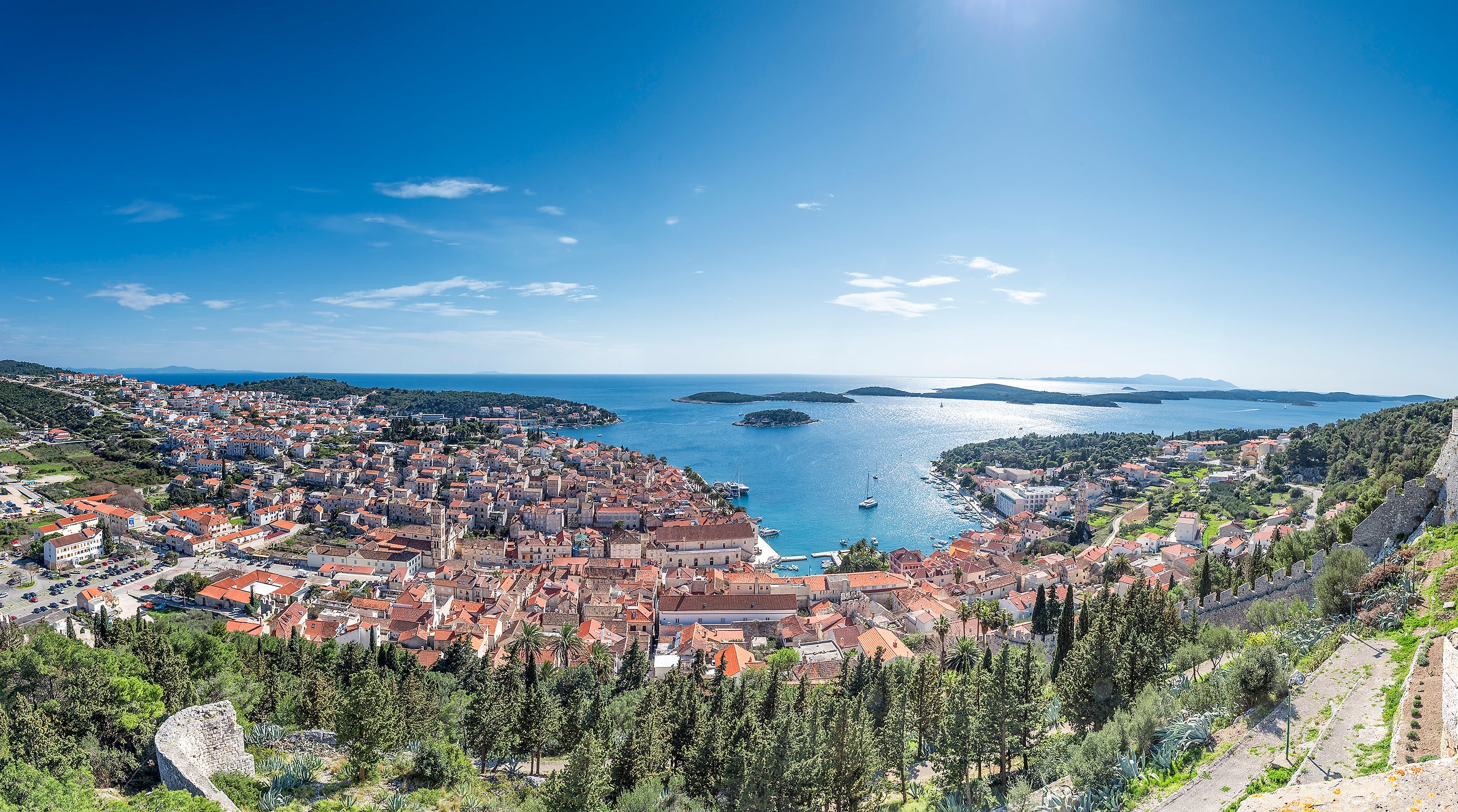About Hvar Island
Official website

Official website

About
Hvar is one of the most beautiful islands of the Mediterranean, its hillsides are covered in pine forests, vineyards, olive groves, fruit orchards and lavender fields. The island climate is characterized by mild winters and warm summers with 2718 hours of sunshine so it is no wonder that the island is known as the sunniest island in Croatia.
1. Stari Grad Plain
Also known as Ager. This unique plain remains almost untouched as it was 384 BC when the area was colonized by the Ancient Greeks. The landscape features ancient stone walls and trims, as well as small stone shelters bearing testimony to the ancient geometrical system of land division, which has remained intact over 24 centuries.

2. Procession Za Križen
This unique tradition “Following the Cross” holds a deep spiritual connection with the island’s population, dating back to the 16th century. It takes place through the night on Maundy Thursday, passing through Jelsa, Pitve, Vrisnik, Svirče, Vrbanj and Vrboska. Each of the six groups start at their church and follow the course in a clockwise direction, meaning that the groups never meet. The group is led by one cross-bearer, while other members are dressed in white tunics.

3. Benedictine Nun’s Aloe Lace
Aloe lace is made in Croatia only by Benedictine nuns in the town of Hvar. Thin, white threads are obtained from the core of fresh aloe leaves and woven into a net or other pattern on a cardboard background. The resulting pieces are a symbol of Hvar.

4. Mediterranean Diet
The tradition of a healthy lifestyle and gastronomy on island Hvar can be dated back centuries. This is not a surprise due to all the fresh fish, seafood, home grown fruit and vegetables as well as wine made from sun kissed grapes, which all play a very large role in the Dalmatian diet.

5. Klapa Singing
This multipart singing is an expression of the cultural identity of Dalmatia as a whole, therefore including the island of Hvar. The leader of each singing group is the first tenor, followed by several tenori, baritoni and basi voices. During performances, the singers stand in a tight semicircle.

6. Stone Walling
The art of dry-stone walling is something that is commonly used to separate land plots. Stone walling means the assembly of stones on top of each other without the use of any connection material, except sometimes soil. Locals call it “suhozid”.
